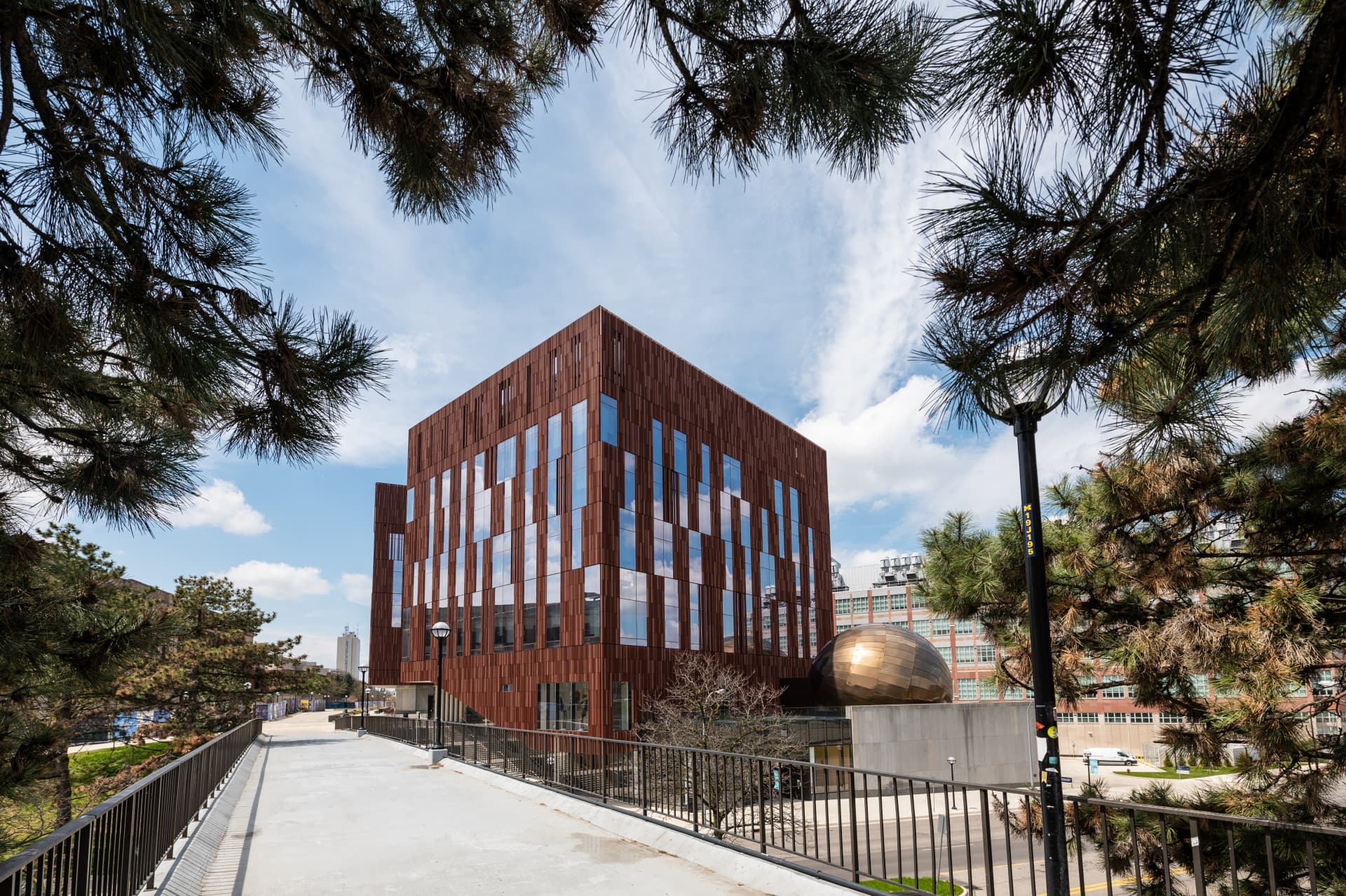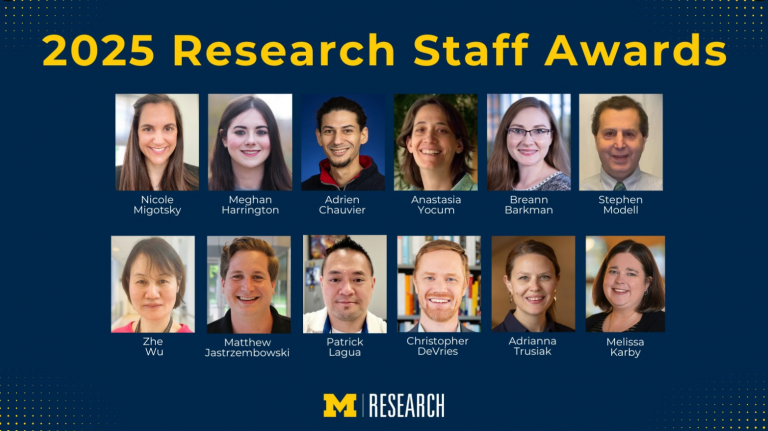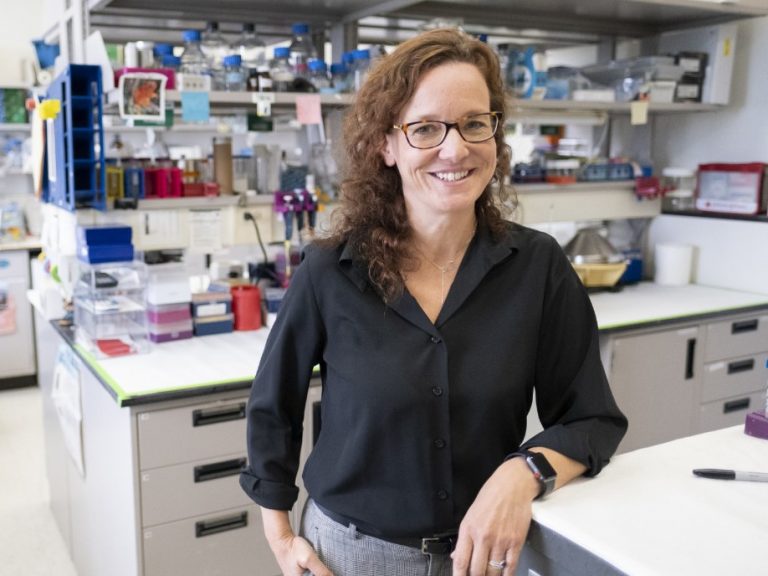Yan Zhang wins prestigious National Science Foundation CAREER award to develop non-Cas9 CRISPR-Cas tools for human genome engineering

ANN ARBOR, Mich., Apr 23, 2024 – We are thrilled to announce that Yan Zhang, Ph.D., Assistant Professor of Biological Chemistry at the University of Michigan, has won a distinguished CAREER Award from the U.S. National Science Foundation (NSF).
The U.S. National Science Foundation (NSF) Faculty Early Career Development (CAREER) Program offers awards in support of early-career faculty who demonstrate strong potential to serve as academic role models in research and education. The NSF was established in 1950 by Congress, and accounts for approximately 25% of federal support to U.S. colleges and universities for basic research.
Yan is a long-standing Center for RNA Biomedicine faculty scientist and active member of the Executive Committee, and the NSF no doubt recognized her commitment to a lifetime of leadership in integrating education and research.
The prestigious award includes a $1.1 million, five-year grant that will help fund Yan’s project, “Expanding and Leveraging the Natural Diversity of Type I CRISPR for Genome Engineering.” For this study, Yan and her team will use human cell culture, high-throughput sequencing, and bacterial genetics to advance understanding of the diversity, function, and biotechnological potential of multi-subunit CRISPR-Cas systems.
Nobel Prize-winning CRISPR-Cas9 tools have revolutionized scientists’ ability to install precise genetic modifications in plants and mammals. “CRISPR-Cas9 was initially found in bacteria as an anti-viral defense weapon, and is now used as a ‘DNA scissors’ technology, profoundly impacting agriculture, synthetic biology, medicine, and beyond,” Zhang said. “It was an historic moment when in 2023 the FDA approved the first CRISPR-based drug for treating sickle cell disease, and represents a lifeline for patients to get the attention and equitable access to care they’ve so often been denied.”
This award will allow Yan to expand her research area from the widely studied single-protein Type II CRISPR-Cas9 systems, into the relatively uncharted realm of multi-protein enzyme complexes such as Cascade-Cas3 of Type I CRISPR, the most abundant and diverse type of CRISPR in the microbial world yet under-exploited in biotechnology. “These are the ‘superheroes’ of the bacterial world and have many special features unavailable to Cas9,” Yan reports. “They hold a host of rich possibilities. My team and I want to exploit this molecular diversity, and hope that this project will yield new genome-editing platform technology [tools, inventions] that will have unconstrained targeting scope.”
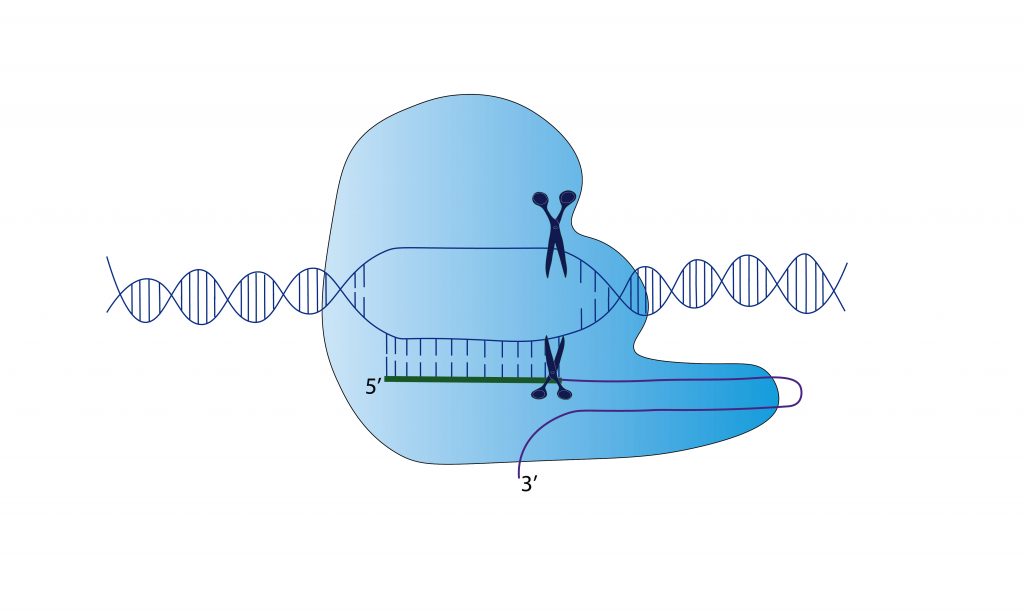
Yan was sparked to submit her CAREER proposal not only by immersion in the dynamic U-M community and speaking with faculty who were awarded NSF grants, but moreover by the progressive education and outreach aspects of the program. She’s collaborating with the U-M Museum of Natural History to create a CRISPR-themed exhibit that will be open to the public. “As CRISPR technologies continue to disrupt biotech sectors, it is important to cultivate broad public appreciation and use CRISPR to incite STEM interest in at-risk minority youth,” Zhang said.
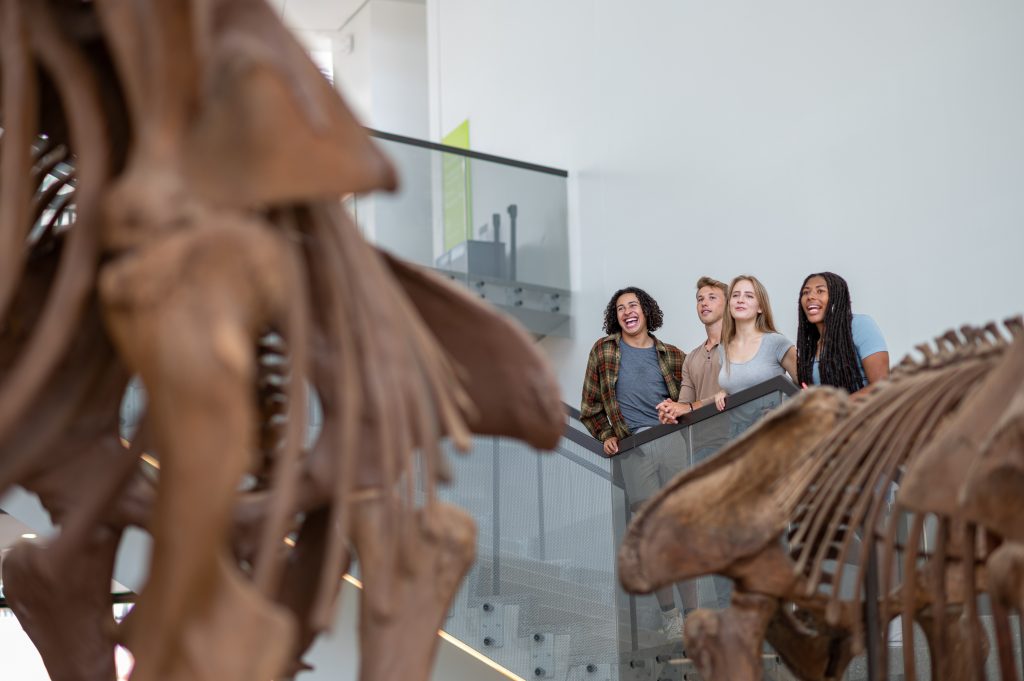
Yan and the museum team will also develop a “Science for Tomorrow” outreach program. They will travel to area high schools, deliver CRISPR lessons to students, with the objective of getting them interested in STEM careers. Some of these students will then be brought on campus to visit and experience operations in the Museum and the Yan Zhang Lab – another component to the educational arm.
“I’m passionate about encouraging young students,” Yan said. “A major focus of my CAREER project involves outreach to students from underrepresented groups who traditionally have had less access to resources and information about STEM. That’s an aspect of this award that’s very important to me, and something I’m very much looking forward to playing an active role in.”

